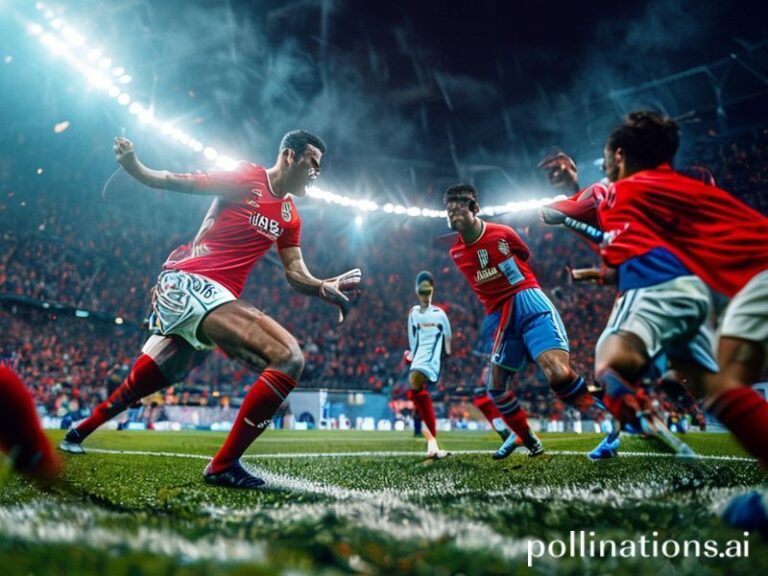Denis Shapovalov: The Relatable Rebel Redefining Tennis and Internet Culture
### **Denis Shapovalov: The Canadian Comet Taking the Tennis World by Storm**
In the fast-paced world of internet culture, trends come and go like a poorly timed serve at Wimbledon. But every once in a while, a name emerges that sticks around longer than a viral dance challenge. Enter Denis Shapovalov, the Canadian tennis prodigy who’s been making waves on and off the court. Whether you’re a tennis aficionado or just someone who enjoys a good underdog story, Shapovalov’s rise is worth your attention. Here’s why he’s trending globally and why you should care.
#### **Who Is Denis Shapovalov?**
For those who haven’t been keeping up with the ATP Tour, Denis Shapovalov is a 24-year-old Canadian tennis player who’s been turning heads since his junior days. Known for his fiery personality, explosive forehand, and occasional on-court meltdowns, Shapovalov has become one of the most exciting young talents in the sport. His journey from a junior sensation to a top-10 player is a testament to his skill, resilience, and, let’s be honest, his ability to keep fans entertained.
#### **Why Is He Trending Now?**
Shapovalov’s recent performances have catapulted him into the global spotlight. His dramatic run at the 2023 ATP Masters 1000 event in Madrid, where he reached the semifinals, showcased his ability to compete with the world’s best. His aggressive playing style, combined with his knack for dramatic comebacks, has made him a fan favorite. But it’s not just his on-court antics that have people talking—it’s his personality.
Shapovalov is the kind of player who doesn’t shy away from expressing himself. Whether he’s arguing with umpires, celebrating wildly after a big point, or engaging with fans on social media, he brings a level of authenticity that’s refreshing in a sport often seen as stuffy and traditional. In an era where athletes are expected to be polished and PR-friendly, Shapovalov’s raw, unfiltered approach resonates with a younger, more internet-savvy audience.
#### **Cultural Context: The Rise of the Relatable Athlete**
Shapovalov’s popularity isn’t just about his tennis skills—it’s about his relatability. In a world where social media amplifies every misstep, Shapovalov’s occasional outbursts and emotional reactions make him feel more like a friend than a distant celebrity. His candid interviews and social media presence give fans a glimpse into his life beyond the court, making him a relatable figure in an otherwise elite and often insular sport.
This trend isn’t unique to Shapovalov. Athletes like Naomi Osaka, Coco Gauff, and even the NBA’s Ja Morant have gained massive followings by being authentic and engaging with their audiences on a personal level. Shapovalov fits perfectly into this mold, and his rise is a testament to the power of authenticity in the digital age.
#### **Social Impact: Inspiring the Next Generation**
Shapovalov’s success has also had a significant impact on the next generation of tennis players, particularly in Canada. His rise has inspired young athletes to pick up a racket and dream big. Tennis Canada has seen a surge in participation, with many young players citing Shapovalov as their inspiration. His success has also put Canadian tennis on the map, a feat that was once dominated by the likes of Milos Raonic and Eugenie Bouchard.
Beyond Canada, Shapovalov’s global appeal has helped diversify the sport, which has historically been dominated by European and American players. His presence in major tournaments has brought a fresh perspective and a new fan base, making tennis more inclusive and exciting for a broader audience.
#### **What Makes Him Significant?**
Shapovalov’s significance extends beyond his tennis prowess. He represents a shift in how athletes engage with their fans and the media. His willingness to be himself, flaws and all, has made him a role model for young athletes who want to succeed without sacrificing their authenticity. In a world where social media can be a double-edged sword, Shapovalov’s ability to navigate it with grace and humor is a lesson for us all.
Moreover, his success has highlighted the importance of mental health in sports. Shapovalov has been open about his struggles with anxiety and the pressures of professional tennis. His candor has sparked important conversations about the mental well-being of athletes, a topic that’s often overlooked in the pursuit of victory.
#### **Conclusion: The Shapovalov Effect**
Denis Shapovalov is more than just a tennis player; he’s a cultural phenomenon. His rise to stardom is a testament to the power of authenticity, relatability, and resilience. In a world where trends come and go, Shapovalov’s impact is here to stay. Whether he’s winning Grand Slams or just making us laugh with his on-court antics, one thing is clear: Denis Shapovalov is a force to be reckoned with, both on and off the court.
So, the next time you see a viral clip of Shapovalov celebrating a big win or arguing with an umpire, remember that you’re witnessing more than just a tennis match. You’re witnessing the rise of a new kind of athlete—one who’s redefining what it means to be a star in the digital age.







